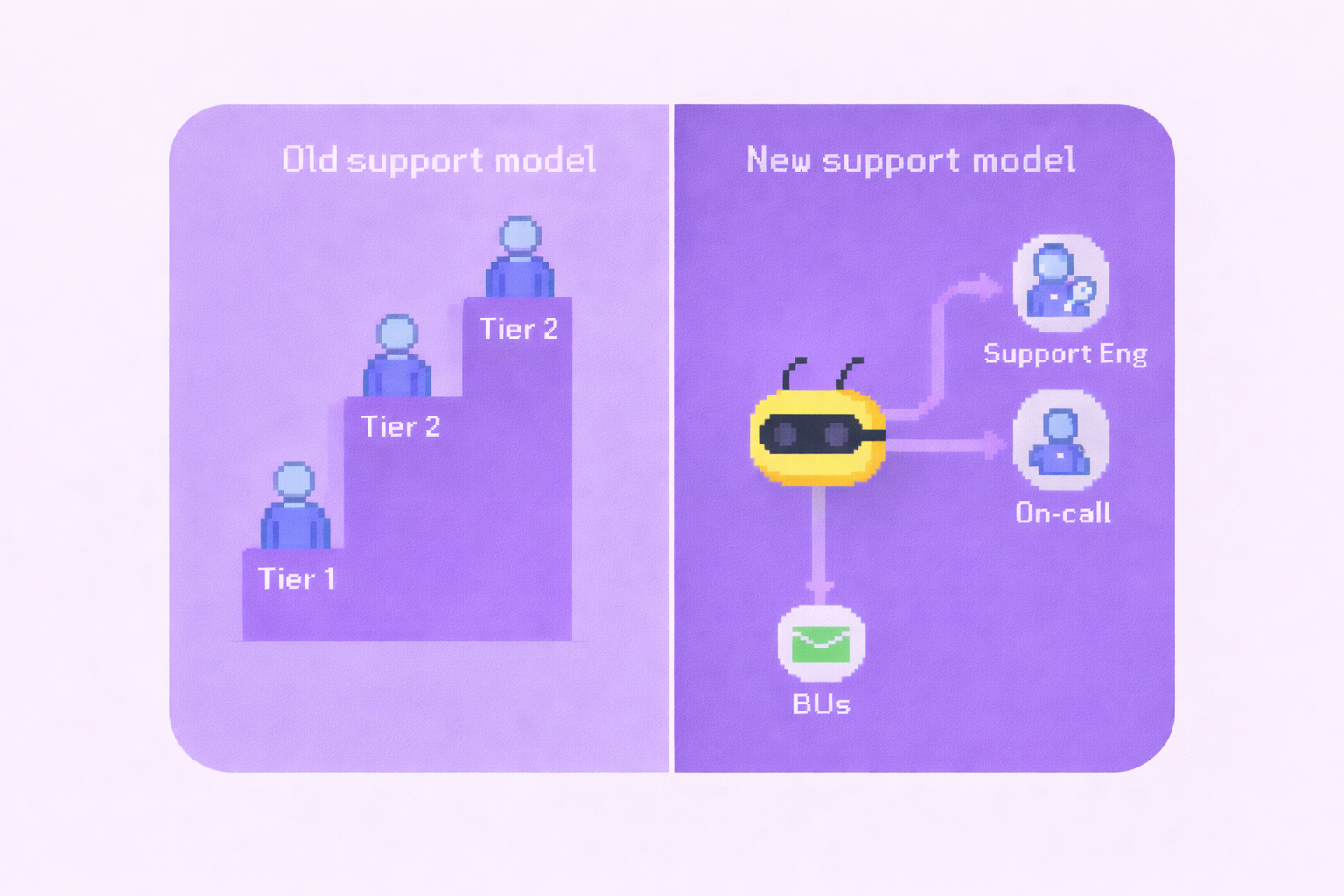7 Tips for First-Time Managers

A lucky few of us are born leaders. But everyone else? We need a little (or a lot) of guidance and enablement to grow into the leaders we want to be. And that’s okay! Leadership is a skill that can absolutely be learned, studied, and trained.
If you’re a first-time manager looking for advice and guidance on becoming the best manager you can be, for your people and yourself, this blog post has the key advice you need to succeed.
Remember: becoming a manager is a massive career transition, and making the change as a first-time manager takes time, patience, practice, and support from your manager too. You’ve got this! Let’s get into the most important tips for new managers you need.

1. Prioritize weekly 1:1s
This might be a tough one, especially at first. You’re likely overloaded with other meetings, tasks, and to-dos as you lean into becoming a manager.
But these weekly 1:1s (and yes, they should be weekly for new managers) are truly the foundation of your leadership growth. They allow you to connect with your team members about work, keep tabs on progress and processes, and spot problems and opportunities alike early on. Make sure these meetings get on the calendar and stay a top priority, even when things get busy.
2. Get to know your reports as people
You don’t need to just stick to serious work-related topics in and outside of 1:1s. Taking time to get to know your team on a personal level is key too. Providing team bonding moments, big and small, and asking employees about themselves builds connections that go beyond tasks and projects.
It builds trust too, as employees get to know that you care about them as people and not just as workers. We’ve got a list of questions to ask your employees every week that include some personal ones, if you’re not quite sure where to start.
This can be a tough line for first-time managers to thread sometimes, as you may worry about becoming too friendly with your direct reports. But there’s a difference between knowing about employees on a personal level and crossing a line, and you’ll find it with time (and potentially good advice from your network).
3. Find a mentor and build a network
Being a new manager can be challenging: but you don’t have to struggle alone. Make it a point to find yourself a mentor—an experienced manager who can help guide you through the transition and the trickiest parts of being a first-time manager. Your own manager can also be a great resource, but having an outside mentor can provide a different point of view which can prove helpful.
Your peers can be a wonderful resource as well—make it a point to reach out to fellow newer managers in your company. You can create a little cohort to share experiences and tips, trade advice on tough situations, and provide support.

4. Keep a continuous learning mindset
You’re the boss now! But that elevation doesn’t mean you’ve learned it all. Far from it! Maintaining your commitment to educating yourself is key: on how to be a better manager (which you’re doing right now!), best practices in your field, new updates in technology, and how to motivate employees every day.
Even experienced managers still have plenty to learn, as managing practices shift and adapt to new realities (for example, the sudden shift to remote and hybrid work we all went through in 2020). Make time in your schedule to stay up to date and dive deep into new research, topics, and tips to stay at the top of your game.
5. Shift your focus
One of the hardest things about being a new manager is the total shift in what matters. A great individual contributor performs their own tasks to perfection. But a great manager isn’t judged by the tasks they get done: it’s by how they enable their people to do their best. That’s easy to write, but making that mindset shift is difficult for most new managers.
Your commitment to continuing education will help here, as will your network of peers and mentors. And thinking of yourself as a performance enabler will prove useful (and motivating for both yourself and your team members too).

6. Manage your time wisely
You’re going to have lots of demands on your time now, from many more directions than you had as an individual contributor. Getting aggressive about managing your time, and saving time on manual tasks and ones that aren’t related to coaching and developing your people, will help you make enough time for the things that really matter.
You can start with this list of tools and tech that will help you juggle your workload better, and move on to our AI for managers suggestions to further hone your efficiency and time management. Be strategic and thoughtful about what you prioritize and you’ll get a handle on it all soon.
7. Create a culture of feedback
Feedback is the secret to high-performing cultures—and high-performing managers too. While you can’t single-handedly change your whole organization into one that thrives on feedback, you can do that for your team (and hey, maybe it will spread).
Why is feedback so critical for managers? Because it enables you to understand what is working and what isn’t, and it does the same for your team. And don’t forget that feedback is a two-way street: you need to give it regularly to employees, and also ask for it yourself.
Let your team know what they’re doing well frequently, and let them know when something isn’t working too. They’ll learn that they can trust you to be honest and upfront with them, and that trust might be your most valuable currency as a manager. Giving and receiving feedback can feel like the hardest thing you’ll do as a manager, but it gets easier with time and with practice.
The takeaway
Becoming a manager for the first time is exciting—and a bit nerve-wracking too. You’ve got lots to learn but you’ve also got the tools and tips for new managers you need right here to help you succeed.
Also, don’t be afraid to ask for help when you need it too! Your manager, your mentor, and your network of peers are all there for you. And Bonusly is too, with our manager enablement tools at your fingertips. Good luck!








